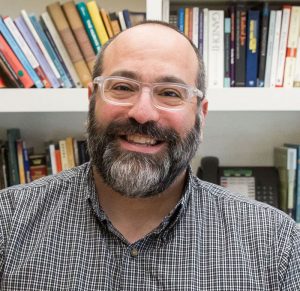Genesis Prayer and Meditation in the Aftermath of the Paris Attacks


As we wound down programming on Friday night, word spread throughout the assembled group about the terrorist attacks in Paris.
The juxtaposition of our retreat theme and bucolic setting with the violence on the blood-soaked streets of the French capital weighed heavily on us.
Several people expressed feeling an intense and confusing rush of emotion, including sadness and concern for the victims and their loved ones; anger at the attackers and their superiors; fear of an escalation of hatred and violence; futility in the face of yet another terror attack carried out in the name of God and religion; and an almost desperate desire to help bring some measure of comfort and healing to our beautiful, but wounded, world.
Among the things I found most helpful in sorting through my own my jumbled thoughts and feelings were the opportunities—both planned and spontaneous—for communal prayer, song, and meditation over the course of the weekend.
Sitting with others and simply chanting the word “Shalom/Salaam/Peace” or sharing in silent reflection served for me as powerful ways to express something of my own yearnings, hopes, frustrations, and commitments. Doing so in the company of Jews, Christians, and Muslims all struggling to find a peaceful way forward in response to these vicious attacks made these moments feel particularly poignant.
In unpacking my experience in the days since the retreat, my thoughts turned to this week’s Torah portion of Va’Yetzei, Genesis 28:10-32:3. The reading opens with Jacob taking leave of his parents’ home after successfully carrying out his elaborate plot to wrest the blessing of the firstborn from his older brother Esau.
As the text indicates, “Jacob left Be’er Sheva and set out for Haran (28:10).” As the sun set, he stopped at a nameless place along the way and set up camp for the night.
Interestingly, there is an ancient rabbinic tradition (Babylonian Talmud 26b) that it was at this moment that Jacob first established the evening prayer service, known in Hebrew as Arvit (or Ma’ariv).
Centuries later, a Hasidic master known as the Sefat Emet (d. 1905) built upon this Talmudic teaching by urging us to view Jacob’s arrangement of the stones at his makeshift encampment symbolically, understanding this physical act as being reflective of an internal process of discernment.
Alone at twilight, separated from his family and friends, and nearing the border, Jacob sought to reorient himself physically and spiritually. Using an insightful wordplay, the Sefat Emet writes that in the midst of his confusion, irbuv, Jacob fashioned the evening prayer service, Arvit (the two words share the same Hebrew letters).
Our Hasidic commentator goes on to say that by enacting this evening ritual, Jacob bequeathed to all future generations, particularly those who feel disoriented or dislocated, a nightly opportunity for introspection and renewal. And like the lonely patriarch, we might emerge from such devotional experiences with the recognition that “God is in this place” (Genesis 28:16).
This is how I felt at the Lake Junaluska retreat last weekend. The musical and meditative experiences helped me to open my heart and quiet my mind. But unlike Jacob, I had the benefit of being with a community of fellow seekers with whom to process these horrific events and our visceral reactions to them. The fact that we were a multi-religious group engaging in this work felt like a fitting response to the violent triumphalism of ISIS.
Part of what made these prayerful moments so meaningful for me is that the people leading us in chant and song and framing the meditations were attentive to the challenges and possibilities of engaging in such activities as a multi-religious group. Further, there was ample time and space for us to engage in our own distinct prayer practices.
In thinking about my participation in the peace retreat and the teaching from the Sefat Emet, the words of another great Jewish spiritual teacher, Abraham Joshua Heschel (d. 1972) come to heart and mind:
“Prayer is no panacea, no substitute for action. It is, rather, like a beam. It is in this light that we who grope, stumble and climb, discover where we stand, what surrounds us, and the course which we should choose” (Man’s Quest for God, p. 8).
As Heschel rightly states, prayer is not enough; it must lead to concrete action in the world. But as he notes, prayer can be a powerful context for individual and collective reflection that leads to purposeful action.
This is particularly important in instances of pain, loss, and anguish, when we might feel a reflexive need to act or, conversely, paralyzed by the severity of the situation. In such circumstances, prayer and contemplative practice can help us as we “grope and stumble,” providing us with the necessary space to thoughtfully choose our course of action.
Rabbi Or Rose is director of the Center for Global Judaism at Hebrew College.

